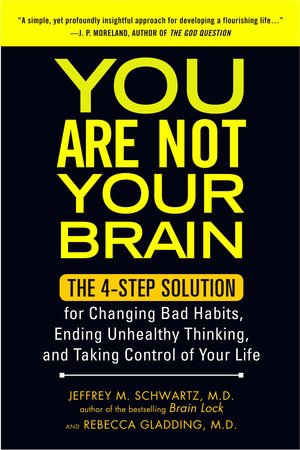Recommended Reading: Books On Habits and Change
We are living in an age of the discovery when it comes to the workings of human behavior. Researchers are integrating findings from psychology, sociology, and neuroscience to deepen our understanding of how and why do what we do. And there is a growing body of resources talking about the benefits of daily habits with tips and tricks for how to establish and maintain them. These reads are notable because they are not only well-researched, but also written and formatted in a way that makes the information usable.
In this book, Pulitzer-prize winning reporter Charles Duhigg introduced the public to the idea of “the habit loop” - a model that can be used to understand how habits form and what we can do to change them. By dividing the process into three basic components - cue, routine, reward - he provided a simple, yet elegant framework for breaking down habits. This is helpful because you cannot change what you cannot see. Using “the habit loop” as a starting point, it is easier to know where to look.
This book is very digestible and does not require any prior understanding of human behavior research.
TL;DR? Watch Charles Duhigg describe the core ideas from his book in this short video.
Atomic Habits: An Easy & Proven Way to Build Good Habits & Break Bad Ones
by James Clear
Author and habit-enthusiast James Clear builds on the Charles Duhigg’s idea of “the habit loop” by adding one more step to the process - cue, craving, response, reward - and defining the “Four Laws of Behavior Change.” He provides simple graphics and clear, practical examples of how to use behavior science to develop informed, effective strategies for change.
The clarity and compassion in Clear’s writing is a major strength. Reading about habit change does not get much more approachable than this.
TL;DR? Check out this talk by James Clear in which he goes over ideas from his book.
Decades of clinical and research experience have gone into Changing for Good, which outlines a process model used by most (if not all) behavioral specialists - the transtheoretical model. This model is so named because it distills knowledge from many therapies to form a single integrated understanding of the process of behavior change. The authors encourage us to figure out which stage of the process we are in, so that we can select and engage in the appropriate mental, emotional, and physical tasks to help ourselves move forward. By doing so, we can be more compassionate with ourselves and prevent some of the frustration of not making the changes we planned.
This book gets a little into the weeds of the research from time to time, but is overall a clear and practical read.
TL;DR? This Practical Psychology video goes over each step of the transtheoretical model.
If changing behaviors feels not only challenging but downright painful, then this may be the book for you. Written by two UCLA psychiatrists who specialize in supporting those who feel trapped by their own habits, You Are Not Your Brain provides a comprehensive and compassionate overview of why the behavior change process can feel emotionally difficult and energetically draining. They then offer a four-step program for managing the particular thoughts and feelings that get in the way of our goals.
There is a lot of nuance to how the techniques in this book can be applied. Feel free to check it out for yourself, but I recommend talking to a trained professional for support and guidance with this process.
TL;DR? Schwartz goes over the main points of the book in this video.
What behavior could feel more difficult to change than an addictive one? Physician and addiction specialist Gabor Maté provides a compassionate view and articulate deconstruction of the challenges surrounding addiction in the US. His analysis of the numerous contributing factors shares with us a depth and breadth of understanding that only a true expert can achieve. Furthermore, he explains that we don’t need to use substances to form an unhealthy pattern of addictive behavior and relates his own struggles with, what else?, classical music addiction.
TL;DR? In this illustrated video, Gabor Maté defines addiction as well as its causes and conditions.
find guidance for your path
Sometimes a self-help book just isn’t enough to create change. Ready for a personal guide to support your journey towards a more satisfying daily life? Set up a free consultation to get started.





